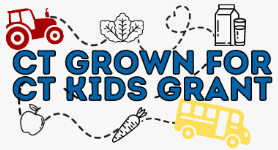

F2CC curates, filters, and organizes content content designed specifically for a high school culinary classroom. Our turnkey curriculum includes a semester-long Foods 1 course as well as shorter units that provide content in the fields of regenerative agriculture, food culture, food justice, and climate change.
Like many Foods 1 classes, in this curriculum students are introduced to the concepts of safety and sanitation; kitchen tool selection, storage and proper usage; measurements, nutrition, baking basics, and simple food preparation. Lessons in this class go deeper to make connections to food studies concepts such as seasonality, regenerative agriculture, food systems, food access and food justice.
View Foods 1 CurriculumFoods 2 builds advanced culinary skills while connecting students to the broader food system and diverse culinary traditions. Students will deepen their kitchen confidence through foundational practices, advanced techniques, and the science and art of baking. They’ll explore global and regional cuisines, focusing on cultural competency and addressing issues like sustainability and appropriation. The course culminates in a pop-up dinner experience, where students showcase their newly acquired skills and tell stories through their food.
View Foods 2 CurriculumThese standalone units provide culinary classrooms with a comprehensive understanding of the food system, exploring how food is grown, processed, and consumed, and its broader environmental, cultural, and social impacts. The units foster a deeper awareness of the complexities and challenges within our global and local food systems by examining sustainable agriculture, regional food traditions, climate change, and food waste prevention. Each unit emphasizes hands-on learning, critical thinking, and real-world applications, encouraging students to connect their knowledge to actionable solutions. Together, these lessons empower learners to make informed choices about food, appreciate its cultural significance, and contribute to a more sustainable and equitable food future.
View Standalone Units CurriculumThis video discusses sustainable farming practices focused on raising animals on pasture. It highlights the benefits of pasture-raised animals for animal welfare, environmental health, and food quality. The video covers various aspects of pasture management, rotational grazing, and the positive impacts on soil health and biodiversity. It emphasizes the importance of ethical farming practices and provides insights from farmers who have successfully implemented these methods.



389 N. Main Street, Stonington, CT 06378
P.O. Box 202, Stonington, CT 06378
(860) 245-5119